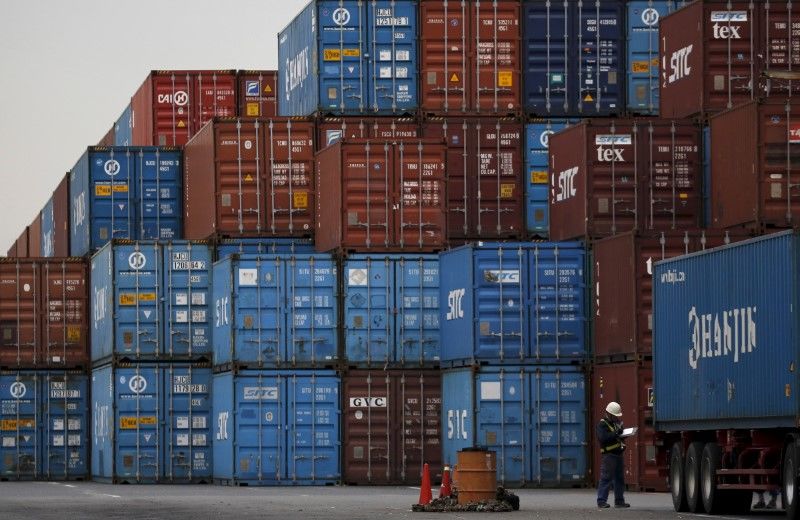Robust exports drive up Japan's current account surplus in Jan-June
Newsfrom Japan
- English
- 日本語
- 简体字
- 繁體字
- Français
- Español
- العربية
- Русский

FILE PHOTO: A laborer works in a container area at a port in Tokyo, Japan, March 16, 2016. REUTERS/Toru Hanai
By Leika Kihara
TOKYO (Reuters) - Japan's current account surplus jumped in the first half of this year as exports to the United States and Asia boomed, data showed on Tuesday, with robust global demand for durable goods helping to cushion the economic blow from the pandemic.
In contrast, the country's services deficit widened in January-June from a year earlier as the pandemic kept foreign visitors from entering the country, the finance ministry data showed, highlighting the pain the crisis has inflicted on Japan's once-booming tourism industry.
A separate survey showed sentiment in Japan's services sector improved in July though an index gauging the outlook worsened, underscoring the fragile nature of the country's recovery.
"Infection numbers continue to rise, triggering government requests for people to avoid travelling during the summer holiday season," analysts at SMBC Nikko Securities wrote in a research note. "Private consumption may have held up in July but seen slumping in August."
Japan reaped a current account surplus of 10.47 trillion yen ($94.78 billion) in the first half of this year, up 3.5 trillion yen from the same period last year, due largely to a 22.2% jump in exports, the data showed.
Exports of cars, auto parts and chip-making equipment boomed particularly for those bound to Asia and North America, the data showed, a sign that manufacturers benefited from strong global demand for durable goods.
By contrast, Japan saw its services deficit widen by 146.7 billion yen to 2.09 trillion yen in January-June due to a 97.6% drop in overseas visitors, the data showed.
Japan's economy emerged from last year's pandemic-induced doldrums thanks to solid exports. But slow vaccine rollouts and a resurgence in COVID-19 infections have weighed on consumption, clouding its recovery prospects.
The tourism industry has been hit hard by closed borders and the government's stay-at-home requests. Many analysts say the Tokyo Olympic Games, which ended on Sunday, gave little boost to the economy as no spectators were allowed for most events.
($1 = 110.4700 yen)
(Reporting by Leika Kihara; Editing by Susan Fenton)
(c) Copyright Thomson Reuters 2021. Click For Restrictions -
https://agency.reuters.com/en/copyright.html